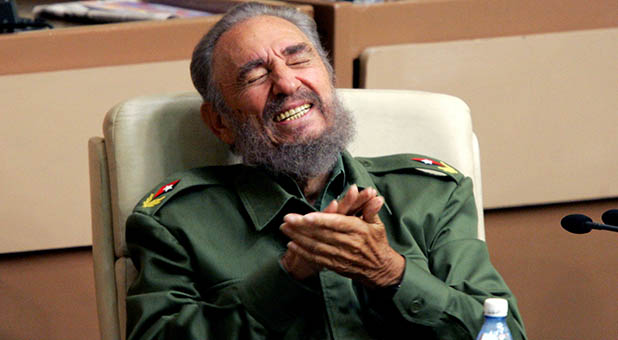A Tale of Two Presidents: How Obama and Trump Reacted to Castro’s Death
If you needed further proof of the change of direction that will come with the onset of the Trump Administration in Washington, D.C., look no further than the difference between President Barack Obama’s and President-elect Donald Trump’s reactions to the death of Cuban dictator Fidel Castro over the weekend.
President Obama said:
At this time of Fidel Castro’s passing, we extend a hand of friendship to the Cuban people. We know that this moment fills Cubans—in Cuba and in the United States—with powerful emotions, recalling the countless ways in which Fidel Castro altered the course of individual lives, families and of the Cuban nation. History will record and judge the enormous impact of this singular figure on the people and world around him.
For nearly six decades, the relationship between the United States and Cuba was marked by discord and profound political disagreements. During my presidency, we have worked hard to put the past behind us, pursuing a future in which the relationship between our two countries is defined not by our differences but by the many things that we share as neighbors and friends—bonds of family, culture, commerce and common humanity. This engagement includes the contributions of Cuban-Americans, who have done so much for our country and who care deeply about their loved ones in Cuba.
Today, we offer condolences to Fidel Castro’s family, and our thoughts and prayers are with the Cuban people. In the days ahead, they will recall the past and also look to the future. As they do, the Cuban people must know they have a friend and partner in the United States of America.
Meanwhile, President-elect Trump said:
Today, the world marks the passing of a brutal dictator who oppressed his own people for nearly six decades. Fidel Castro’s legacy is one of firing squads, theft, unimaginable suffering, poverty and the denial of fundamental human rights.
While Cuba remains a totalitarian island, it is my hope that today marks a move away from the horrors endured for too long, and toward a future in which the wonderful Cuban people finally live in the freedom they so richly deserve.
Though the tragedies, deaths and pain caused by Fidel Castro cannot be erased, our administration will do all it can to ensure the Cuban people can finally begin their journey toward prosperity and liberty. I join the many Cuban-Americans who supported me so greatly in the presidential campaign, including the Brigade 2506 Veterans Association that endorsed me, with the hope of one day soon seeing a free Cuba.
Exiled Cubans in southern Florida appeared to take Trump’s view of Castro’s passing, which ignited celebrations throughout the Miami area. Those sentiments were further shared by two U.S. Senators—and former presidential campaign rivals of the president-elect—who have direct ties to the dictator’s regime: Sen. Ted Cruz (R-Texas) and Sen. Marco Rubio (R-Fla.).
Cruz, in an op-ed for National Review, wrote:
[T]he 60 years Fidel Castro spent systematically exploiting and oppressing the people of Cuba provide more than enough history to pass judgment on both Fidel and, now more importantly, his brother Raul.
My own family’s experience is a case in point. My father, Rafael, had been an early supporter of the revolution against Fulgencio Batista—and spent a time in prison getting his teeth kicked in for his efforts. He fled the island only to return to what he hoped would be a liberated Cuba. Instead, he found a new, even more brutal, form of repression had taken hold. In 1960, he left again, never to return. His sister, my Tia Sonia, bravely joined the resistance to Castro and was jailed and tortured in her turn.
The betrayal and violence experienced by my father and aunt were all too typical of the millions of Cubans who have suffered under the Castro regime over the last six decades. This is not the stuff of Cold-War history that can be swept under the rug simply because Fidel is dead.
Meanwhile, Rubio issued the following statement:
Fidel Castro seized power promising to bring freedom and prosperity to Cuba, but his Communist regime turned it into an impoverished island prison. Over six decades, millions of Cubans were forced to flee their own country, and those accused of opposing the regime were routinely jailed and even killed.
Sadly, Fidel Castro’s death does not mean freedom for the Cuban people or justice for the democratic activists, religious leaders and political opponents he and his brother have jailed and persecuted. The dictator has died, but the dictatorship has not. And one thing is clear, history will not absolve Fidel Castro; it will remember him as an evil, murderous dictator who inflicted misery and suffering on his own people.
The future of Cuba ultimately remains in the hands of the Cuban people, and now more than ever, Congress and the new administration must stand with them against their brutal rulers and support their struggle for freedom and basic human rights.
Both Cruz and Rubio spent much of the weekend posting examples of Castro’s brutality on their social media platforms. They also attacked efforts by many in the liberal mainstream media to paint the dictator as a revolutionary war hero the likes of George Washington. {eoa}
















































